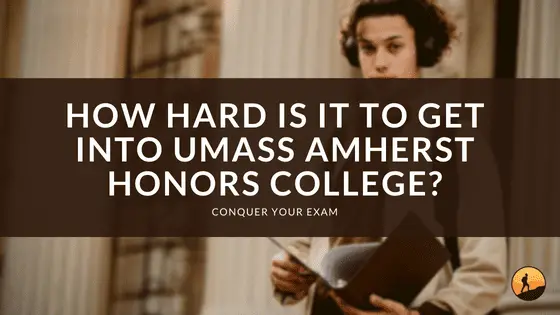Are you thinking about sending your child to prep school and wondering what steps you need to take? Are you hoping to understand the benefits of prep school and if it is worth the investment? If this is you, then you have come to the right place.
Prep schools have a long-standing history of preparing students for their next phase in life, secondary school. Prep schools have also been known as academies. There are several benefits to attending prep school, and we will be sure to highlight some of the most important ones.
Along with providing you with information on what prep schools are and their costs, we will also help you understand how to choose the right school for your child. All you have to do is keep reading to find the information you need.
 What Exactly is a Preparatory School?
What Exactly is a Preparatory School?
Preparatory School has two very different meanings in the United States and within the UK. In the United Kingdom, prep schools prepare children for private secondary schools or grammar schools. In the UK, several schools cater to prep school ages two to thirteen years old.
However, in the United States, prep school is used to prepare students for post-secondary school. These high schools are generally coed, private, or religious-affiliated; however, those are not mandatory qualities. Some may also operate as boarding schools.
These schools often will have stipulations for acceptance, including an admissions exam. They are generally smaller in size and offer more amenities for students.
Why You Should Go to a Prep School?
Every day the college admissions process gets more and more competitive. Therefore, your child must have the edge over their competition. Attending a prep school is one surefire way to give your child a leg up.
There are several advantages to going to prep school. If you know that college is in your future, prep school should be on your radar. Prep schools prepare students with a college curriculum in mind. They aim to develop further the skills they will need in college for proper decision-making and academics.
What are the Benefits of a Prep School?
Now that you know why you should attend, you must know some of the benefits of prep school. Prep school is something you won’t regret. If you know that your child is serious about their academic future, then prep school is definitely for them.
Small class sizes
Small class sizes are a significant advantage to attending prep school. Most public schools are not able to offer the specialized attention that prep schools can. Smaller class sizes allow teachers to spend more time helping students and getting to know them deeper. This aids in more quickly identifying areas they may be struggling with and helping them turn these areas around before it is too late.
More academic freedom
If you were ever looking for a place that allows you or your child to experience an abundance of advanced academic opportunities, a prep school is a way to go. Often times they will offer advanced placement courses, also known as AP courses, and even college bridge programs. College bridge programs allow students to experience college courses while obtaining high school credit.
Prep schools also offer several course subjects which may not be available at typical schools.
Supported Independence
Prep school aids your child is maturing and developing their life skills. Prep schools often trust students with more responsibility but provide less supervision, much like college. However, though they are not micromanaging their every move, teachers and faculty support their growth by providing them with ways and strategies to balance their home and school life. They are also aiding in making them accountable for their actions sooner rather than later.
Increased Opportunity
Imagine your child telling you that they want to join a chess team or the golf team and their regular school not providing that. With a prep school, you will find an abundance of extracurriculars and clubs which may not be offered at a traditional high school.
College confidence
Lastly, one of the most important benefits is that your child is adequately prepared for college. This means that they are prepared academically and emotionally. Students can function without being micromanaged and understand the notion of accepting accountability for their actions.
How Much Does a Prep School Cost?
Prep school comes in at various price points; however, you do not need to break the bank to send your child to prep school. There are several different types of prep schools. These can be private or considered magnet schools.
Magnet schools or college prep high schools are options that simply require you to live in the vicinity or city of the selected school as well as take an admissions exam. Students are selected for acceptance based on their pre-high school academics and their admissions exams. Unlike private schools, these schools do not require tuition and many times will not be religiously affiliated.
Typical private schools will cost anywhere from a thousand dollars to tens of thousands of dollars. However, some schools will often offer scholarships for entry. Within the US, tuition by state can vary. For example, according to privateschoolreview.com, Connecticut has average private school tuition of $26,000, whereas Kentucky has an average tuition of $8000.
Though prep schools do offer scholarships, none of these are for sports or athletics. Most prep school scholarships are based solely on the financial need of the students. Some foundations even offer grants for students as well.
What is the Difference Between Prep School and High School?
Prep school vs. high school is one significant debate between schools. Although prep school is a form of high school, it is different from traditional high school in that its focus is preparing students for college. Everything which happens at a prep school is done with this in mind. There are several stark differences between prep schools and high schools, as well as subtle ones. The list below contains several differences and distinguishing factors for each school type.
Cost
Often the cost is one significant difference in prep schools and high schools. Where prep schools will charge for tuition and fees, public high schools will not. This is because the government-funded regular high schools can cover the student’s costs and supplies with this budget.
Advanced Courses
Prep schools will often offer advanced courses and options that regular high schools do not. This could include more specialized courses aimed at a specific track of study, more language options, and even more AP courses than a typical high school would.
Larger Classes
Imagine being one student in a 35 person classroom trying to get the attention of your teacher. You can imagine that this will be a challenging task and that you won’t receive the individual attention that some students need. More extensive courses also mean less individualized study and more traditional assignments.
Religion in Schools
Religion in traditional schools is one thing that is generally frowned upon. While prep schools may celebrate the ability to practice religion in schools, this is not something that high schools allow. This is because many families attending public schools practice a number of different religions. Schools may also be far more diverse than prep schools.
Student Moral
While students who attend prep school are likely to take their academics seriously in hopes of attending an excellent college, that may not be the same for students in traditional high schools. Prep schools are also selective about who they admit, which therefore weeds out the students who are not serious about their academics. While it may not always be the case, prep school students are more motivated to do well and have a better attitude when it comes to learning.
Rule Enforcement
Prep schoolers are often said to be more strict than traditional high schools. They hold students more accountable for their actions and attempt to treat them like adults. Traditional high schools will likely have a general set of rules that students must follow, resulting in conventional consequences.
How to Choose the Right Prep School?
Now that you have decided that prep school is for you, it’s vital that you make the right decision on which school is best for you. There are several things that you should look for when choosing a prep school. These characteristics will be different for each student, but evaluating them will ensure that you are making the right choice.
Choosing the right prep school can make or break your child’s high school experience. Therefore, this journey must be strategic and well thought out. One major tip is to narrow down your options before you begin an in-depth analysis of each school. You do not want to waste your time looking at ten schools when in reality, only 3 are contenders.
Doing a preliminary sweep of your school list by using large determining factors to eliminate schools is an excellent way to begin the process. These eliminating factors may include things like location, school size, amenities, and even school type. Once you have a realistic list of schools, you can use the information below to narrow down your search further.
Tour the school
One thing you should never do is commit to a school without seeing it first. Taking a tour is essential for understanding if the atmosphere fits your child and their learning style. Tours and open houses allow you to get a feel for the atmosphere and meet current teachers and faculty.
If you are lucky enough to attend an open house, you will likely see what the school has to offer as well as be able to get your questions answered on the spot.
Ask questions
If you do not have a chance to attend an open house, you should still ask questions. Make sure that you are asking questions that pertain to you and your child’s needs. You should also make sure that you are aware of any opportunities for financial aid that your child may be eligible for.
Questions can pertain to several subjects and should focus on the items which are important to you. If an interview is needed for admittance, you should be sure to interview the school just as they are interviewing you. You will want to ensure that it is a mutual fit.
Religious affiliation
While some students and parents have no preference for religious affiliation, this is something that can be important for other families. If this is a deal-breaker for you, it may be important to narrow your school list down to only options which meet your religious needs. You will also need to inquire with specific schools what level of religion is involved in the day-to-day activities.
Boarding school or bust
One major determining factor in your prep school search should also be the school type. Is the school a boarding school or a traditional daytime school? This is one easy way to eliminate schools from the list. If you are unfamiliar with a boarding prep school, it is a school where students live. Like a college, students are housed in dorms, and some schools even have classes on Sunday. Many times teachers will live in the school with students, and the school is much stricter.
Cost
Cost is one major determining factor for choosing a prep school that is right for you. You must have a budget when selecting a school. This is something that is extremely important if you do not have a bottomless budget.
Based on your locations, the cost of prep schools can vary. Make sure that you understand what will need to be paid upfront and what exactly you are paying for. You want to make sure you are not choosing a school just because the cost is cheap as it may not have everything that you need.
Wrapping Things Up: What is a Prep School?
Prep school is a school that prepares students to excel in high school. Most times, it is a private school with a religious affiliation that a child must test into before their 8th grade year. Once accepted, students are admitted during their freshman year.
There are several advantages to attending prep school, with the main one being that students will graduate being adequately prepared to go to college and tackle the workload. Though prep school does have an associated cost, it is not the end of the world. There are grants and even scholarships available to students with the need.
Choosing a prep school may be a daunting task, but it is not impossible. Use the tips provided and your own preferences to select a school that is right for your family. Happy hunting.

 What Exactly is a Preparatory School?
What Exactly is a Preparatory School?







